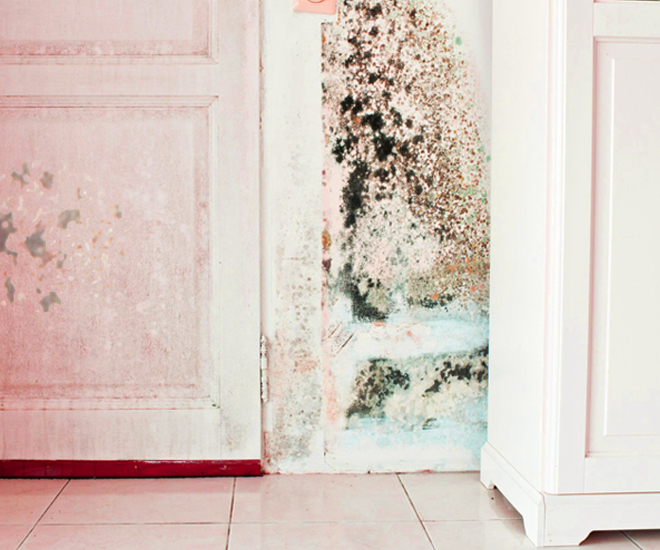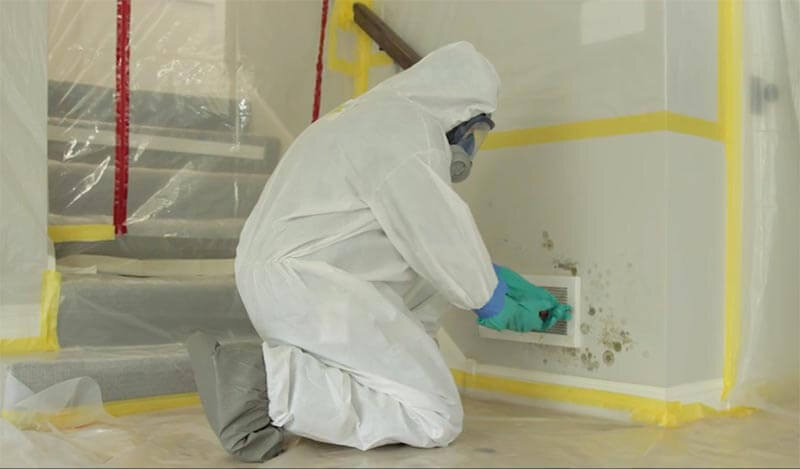Testing Air Quality After Mold Remediation
Wiki Article
Effective Article Mold And Mildew Removal Solutions for Your Home
Mold and mildew development in homes can be a persistent issue, typically requiring a systematic technique for efficient post-remediation services. From recognizing the aspects that add to mold development to implementing correct cleansing methods and dampness control measures, the process can be detailed yet critical for maintaining a healthy and balanced living setting. After mold remediation.Comprehending Mold And Mildew Growth Elements
The key variable contributing to mold and mildew development is wetness. Mold and mildew spores need wetness to thrive and germinate, making moist or damp environments highly vulnerable to mold invasions.
In addition, air flow and light direct exposure can affect mold growth. Areas that lack proper ventilation and natural light are a lot more prone to mold development. By dealing with these factors adequately, individuals can efficiently reduce mold growth and guard their living settings.
Correct Mold And Mildew Cleansing Methods
Making use of efficient cleaning approaches is vital in stopping the recurrence and resolving of mold and mildew contamination in interior environments. When managing mold, it is crucial to prioritize security by wearing safety gear such as gloves, safety glasses, and masks. The initial step in proper mold and mildew cleaning is to have the afflicted location to avoid the spread of spores to unpolluted locations. This can be accomplished by securing off the space and utilizing air scrubbers or adverse air equipments to preserve air high quality.
Executing Wetness Control Actions
To effectively avoid mold and mildew growth and contamination in indoor settings, applying moisture control procedures is critical. Wetness is the key factor that gas mold development, making it critical to take care of moisture levels within the home. One effective action is to utilize dehumidifiers to keep interior moisture levels below 60%. Furthermore, ensuring correct ventilation in locations prone to moisture accumulation, such as kitchen areas and washrooms, can help decrease the risk of mold and mildew growth. Consistently inspecting and repairing any leaks in plumbing, roof coverings, or windows is also essential in preventing excess moisture accumulation. Utilizing exhaust followers while food preparation or bathing, and enabling air flow by maintaining furnishings somewhat away from walls can aid in moisture control. Additionally, making use of moisture-resistant products in high-humidity areas, such as mold-resistant drywall and paints, can be beneficial. By diligently executing these moisture control procedures, house owners can properly minimize the probability of mold and mildew recontamination and maintain a healthy and balanced indoor atmosphere.Utilizing Natural Remediation Solutions
After efficiently carrying out moisture control procedures to protect against mold growth in interior environments, property owners can currently explore the performance of natural removal services in preserving a healthy and balanced living room. All-natural removal remedies utilize environmentally pleasant approaches to battle mold and mold, making them a popular option for those looking for non-toxic options. By incorporating these natural remediation solutions right into their cleaning regimens, property owners can effectively battle mold and mildew growth while promoting a healthier interior setting for themselves and their households.
Preserving a Mold-Free Atmosphere
In order to stop mold reappearance and make sure a regularly mold-free atmosphere, it is necessary for homeowners to implement aggressive upkeep techniques. Routinely evaluating locations vulnerable to mold development, such as bathrooms, attic rooms, kitchens, and basements, is vital. Resolving any leaks, water damages, or excess dampness promptly can considerably minimize the danger of mold and mildew growth. After mold remediation. Proper air flow in locations with high humidity degrees is additionally key to avoiding mold and mildew growth. Utilizing dehumidifiers or exhaust followers can help keep optimal wetness degrees and inhibit mold and mildew spores from growing.In addition, keeping cleanliness in the home is vital for mold prevention. Frequently cleansing and dusting surface areas, carpets, and furniture can aid eliminate mold and mildew spores before they have a chance to multiply and clear up. Using mold-resistant products for building and construction products and furnishings can even more help in developing a mold-free atmosphere. Last but not least, maintaining interior plants in check and making certain proper water drainage in outside landscape design can lessen wetness build-up, decreasing the chance of mold problems. By adhering to these positive maintenance methods, property owners can successfully promote a mold-free home.
Final Thought
In conclusion, it is important to deal with testing air quality after mold remediation mold and mildew development aspects, make use of correct cleaning strategies, apply moisture control measures, make use of natural removal remedies, and keep a mold-free atmosphere in order to successfully handle message mold remediation in your home - Post Mold Remediation. By following these approaches, you can avoid mold and mildew from reoccuring and make sure a healthy and balanced living setting for you and your family
The key aspect adding to mold and mildew growth is wetness. Mold spores call for dampness to sprout and thrive, making humid or moist settings extremely vulnerable to mold problems.To successfully stop mold and mildew development and contamination in indoor settings, executing moisture control measures is extremely important. Furthermore, ensuring correct ventilation in locations prone to moisture accumulation, such as shower rooms and cooking areas, can aid reduce the danger of mold and mildew development.After successfully executing moisture control actions to prevent mold and mildew development in indoor environments, homeowners can now explore the effectiveness of natural removal remedies in maintaining a healthy living space.
Report this wiki page